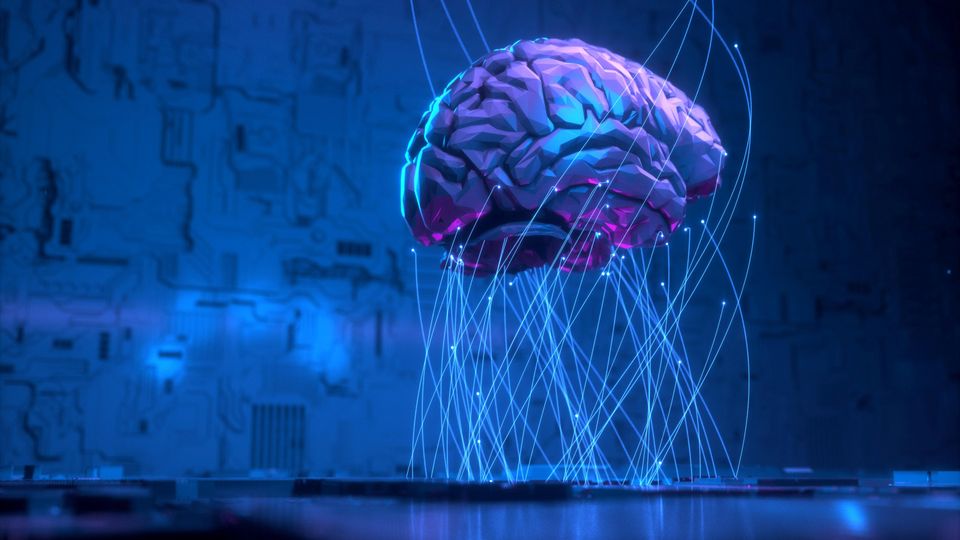$1M Prize Will Advance AI-Powered Alzheimer’s Discoveries
Alzheimer’s AI prize offers $1M for breakthrough tools that can utilize existing dementia research data.

The Alzheimer’s Disease Data Initiative (AD Data Initiative) – backed by Bill Gates and partners – has launched the Alzheimer’s Insights AI Prize, a global competition offering a $1 million first prize for the most innovative agentic AI solution to accelerate breakthroughs in Alzheimer’s and dementia research.
Unlike traditional AI, agentic AI can independently plan, reason and act – helping scientists analyze vast datasets, speed up drug discovery and biomarker identification and improve trial design.
The winning tool will be made publicly available via the AD Workbench, the initiative’s free cloud-based platform that fosters global data sharing and collaboration.
With Alzheimer’s cases projected to reach 152 million by 2050, the prize aims to mobilize the global innovation community to harness AI for faster, more predictive research, with applications opening August 19, 2025.
Technology Networks recently had the pleasure of speaking with Dr. Niranjan Bose, the managing director (Health & Life Sciences Strategy) at Gates Ventures LLC and science advisor to Mr. Gates.
Bose discussed the rationale behind the prize, how agentic AI differs to traditional AI and the impact AI could have on the Alzheimer’s research landscape.
What opportunities could AI hold for Alzheimer’s disease research that are not yet being realized? Why?
AI has the potential to be transformative for Alzheimer’s research, allowing us to deliver breakthroughs far quicker than ever before. Here are three examples of ways we could use AI:
- To harmonize data and create large datasets that uncover insights unobservable in smaller samples
- To identify hidden patterns across multimodal data such as neuroimaging, speech patterns and biomarker data
- To design collaborative frameworks for secure, privacy-preserving research at unprecedented scale, breaking down traditional research silos.
The AD Data Initiative has built a coalition of partners and an interoperable data-sharing and research environment, the AD Workbench, to advance the kind of collaboration that’s needed to drive progress.
Incorporating AI systems could help tackle some of the most complex integration challenges we’re seeing and enable researchers to work together more efficiently to discover new insights.
How does agentic AI differ from traditional AI, and why is this the focus of the $1 million prize?
Traditional AI is reactive – it answers questions when prompted. Agentic AI is autonomous – it plans, reasons and acts independently without constant human direction. Rather than a tool, think of an AI agent as a research collaborator.
For a complex disease like Alzheimer’s, this kind of autonomy could be revolutionary. We are learning new things so rapidly that, at some point, it will be difficult for individual scientists – no matter how deep their expertise – to be able to efficiently synthesize all the existing knowledge about Alzheimer's and identify the most promising paths of inquiry.
Agentic AI systems that can autonomously execute complex analyses across existing literature and datasets, rather than simply responding to individual queries, could help bridge that gap.
Imagine a world where an AI assistant can not only help reduce the administrative work of curating and cleaning data but also design experiments that minimize the chance of failure.
Applications open on Tuesday, August 19, at 9:00 A.M. ET. You don’t have to be an Alzheimer’s or dementia researcher – we invite AI engineers, computational biomedicine experts, Alzheimer's researchers, clinical specialists, tech companies and multi-disciplinary teams to apply.
A key requirement is that solutions must be compatible with our AD Workbench platform.
Full eligibility details can be found via the AD Data Initiative website.
Why are prizes of this kind a useful approach for advancing scientific research?
The $1 million prize serves as catalytic funding to spur innovation and attract innovators and risk-takers who move quickly. We're hoping to draw talent from adjacent fields, bringing in new expertise and perspectives that traditional research funding can miss. Prizes like this offer a complementary pathway for innovators who may still be early in a project’s development – providing opportunities to advance promising early-stage concepts that may not yet be ready for traditional funding mechanisms.
Prize competitions like this also create collaboration opportunities where teams can share knowledge while competing, benefiting the entire field and accelerating breakthroughs. We’re hoping this prize will have a global reach, attracting ideas from a broad geographic base including regions that might be underrepresented in conventional funding ecosystems.
How will the prize be awarded?
All proposals will be reviewed first by an expert committee, and up to eight semi-finalists will be invited to participate in a live pitch event around the Clinical Trials on Alzheimer’s Disease (CTAD) Conference this December in San Diego, USA. Teams will prepare for a 10-minute pitch, including a short demo of their product prototype and a 5-minute Q&A with the judging panel.
Up to three finalist teams will then be invited to a final 'show and prove” event around the AD/PD International Conference next March in Copenhagen, Denmark. Teams will prepare for a 10-minute presentation, including a short demo of their product, and a 10-minute Q&A with the judging panel. The winner will then be announced at the conference that week.
What is your perspective on the current state of Alzheimer’s research?
We stand at an extraordinary inflection point in Alzheimer's research – the innovation curve is not just accelerating, it's taking off. There's more optimism and energy in the scientific community than ever before, driven by recent breakthroughs in blood-based diagnostics and disease-modifying treatments.
And the stakes couldn't be higher. Today, 55 million people worldwide battle Alzheimer's and related dementias. By 2050, that number could triple if we don't see novel treatments and prevention approaches come to market.
We are compelled to move with urgency and take advantage of every tool out there to accelerate the pace of discovery and development.




